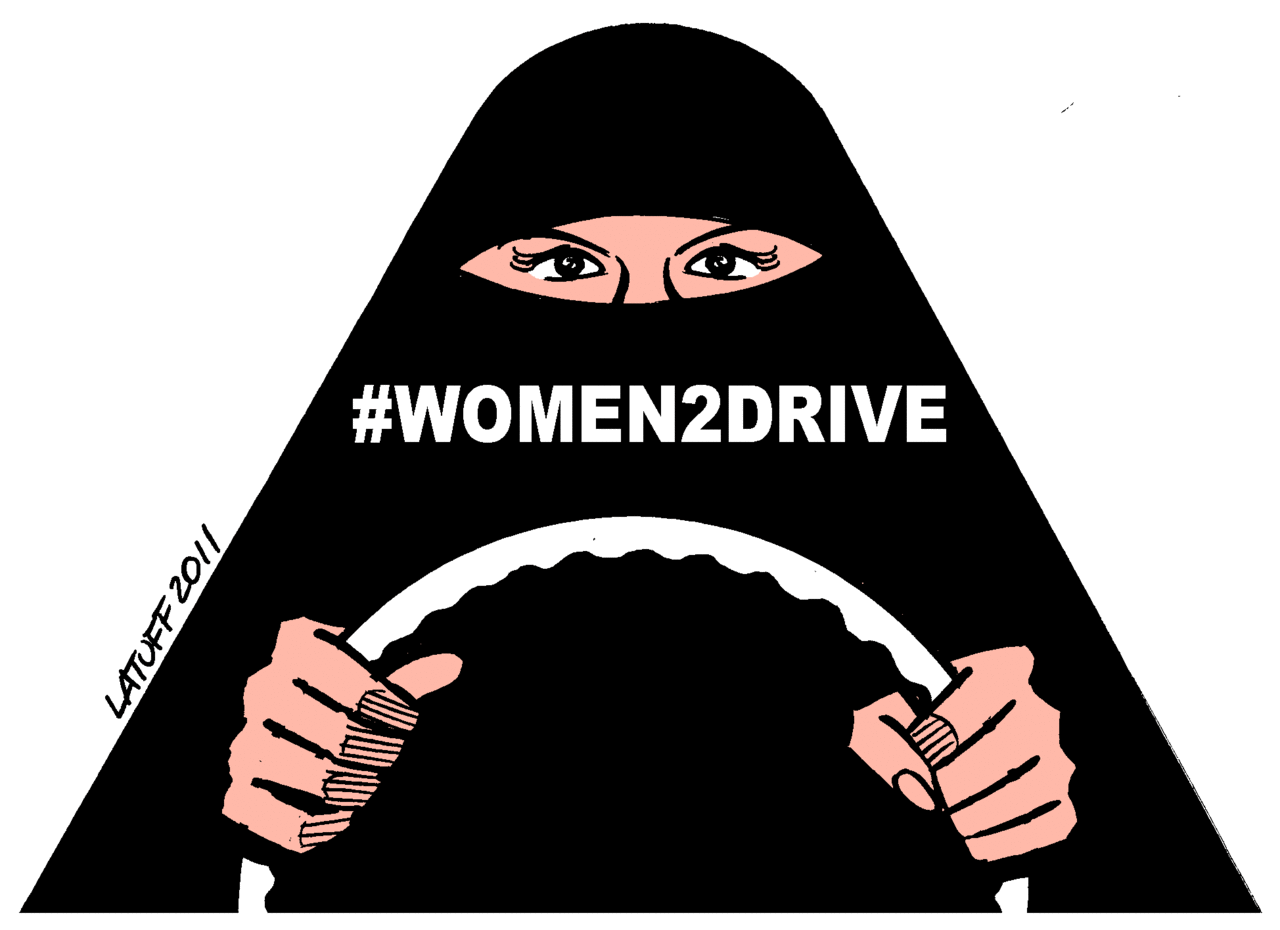In 2011, Saudi Arabian activist Manal al-Sharif posted a video on YouTube of her driving, an act that strict societal norms prohibits women from doing but that is not enshrined in law. The video went viral, and al-Sharif was arrested. Feminists across the world rallied around al-Sharif’s defiance and proclaimed Saudi women’s inability to drive as the ultimate injustice of one of the last absolute monarchies in the world. Yet feminism is much more complex and contradictory in Saudi Arabia than this one – albeit large – limitation on women’s rights and freedoms.

Al-Sharif’s video brought unprecedented Western media attention to the wealthy Middle Eastern monarchy. Trendy hashtags and intense debates about feminism and women’s rights under Sharia law abounded on Twitter, with many non-Saudi feminists denouncing the driving ban and taking up the cause. To many Western feminists, driving seemed like the thing that Saudi women needed to be able to do, the act that would liberate them from the repressive, backward clutches of Saudi men and society.
Five years later, after the music video accompanying a song called “Hwages” (“Concerns”), starring three Saudi women wearing niqabs, driving motorcycles and bumper cars, and singing about a world without men was released in late December 2016, Western media again focused increased attention on the Persian Gulf state. The driving ban was again a popular issue of women’s rights and social justice.
However, the ban on Saudi women driving is not the end-all, be-all of women’s rights and the growing feminist movement in Saudi Arabia. The nation is ruled by strict social norms and both religious and civil laws, many of which contradict each other and perplex foreigners. Saudi women, for example, can be jailed for acts like driving or inciting political dissent, but require a male guardian to sign their prison release papers. As of last year, by royal decree, they can vote, but need a male chauffeur to drive them to their polling station if they are too far to walk. Most abayas (the neck-to-toe body covering Saudi women where when out in public or in the presence of men) are black, but there is no actual law specifying what color the garment should be. In fact, there is no law even requiring women to wear the abaya. Yet any foreign woman over the age of 12 or 13 who enters the country immediately dons an abaya, and almost all Saudi women would not be caught dead out in public without one.
Some Western feminists see the abaya as a symbol of oppression and denounce Saudi women who wear the garment. But the Saudi definition of feminism has evolved out of Saudi Arabia’s unique culture. Many Saudi women, such as Samar Badawi, consider themselves feminists and still voluntarily wear the abaya or ride as passengers in their male chauffeurs’ cars. Others, such as Manal al-Sharif, Souad al-Shammary, and Wajeha al-Huwaider do not wear the niqab nor hijab. These women all believe, though, that the best way to practice their Islam, further their rights, and be feminists is to act within their interpretation of the structure of Islamic law. Today, more Saudi women than men attend university, both within Saudi Arabia and in foreign nations. They work in factories, practice medicine, teach girls, and have power of attorney, while still standing in separate cashier lines from men and sitting at segregated tables in restaurants. To a Western eye, Saudi society may appear reminiscent of Middle Age-like oppression of women. However, a growing number of Saudi women are quietly asserting their authority in the workplace, the courts, the home, and even in government, standing up for themselves and showing that their intellect and strength is equal to men’s.
By any political science standard, of course, Saudi Arabia is far from a pluralist democracy. Political dissent is still crushed by beheading and the royal family still has ultimate authority over every aspect of society. But focusing solely on the driving ban doesn’t do Saudi women as much good as Western feminists may think. Male guardianship of Saudi women, which effectively makes women legal minors, is a larger concern for many Saudi feminists. They have campaigned against the guardianship system for years, using hashtags, articles, and petitions to raise awareness of the practice and persuade the King to abolish it. Finally, on April 17 of this year, King Salman forbade government agencies from arbitrarily requiring a male guardian’s permission for women seeking certain services, such as education and healthcare, but did not address every single practice requiring male guardian approval, such as international travel or child custody. Human Rights Watch, along with Saudi women, have lessened their focus on the driving ban in favor of combating the arbitrary and often informal guardianship system, calling for its complete abolition.
Highlighting the ban against Saudi women driving as just one aspect of a larger system that continually devalues and discriminates against women, instead of focusing all efforts on Saudi women’s ability to drive, will go much further than hashtags and outrage toward helping Saudi women achieve the rights and freedoms they want and deserve. Saudi Arabian feminism may not look like Western feminism, but it is just as powerful and focuses on systemic, structural change that allows women to both practice Islam as they see fit and fight for their place within Saudi society.


Has anyone asked Saudi (or women from any Muslim country) for their take on U.S. women’s feminism?
Has anyone compared violence against women from the different countries?
Does it matter which country has more violence towards women ?
Some saudi women would whole heartedly agree with the Wstern feminist frame and others wouldn’t .
Great article !! Loved your last sentence 🙂
Very interesting and we’ll written article!